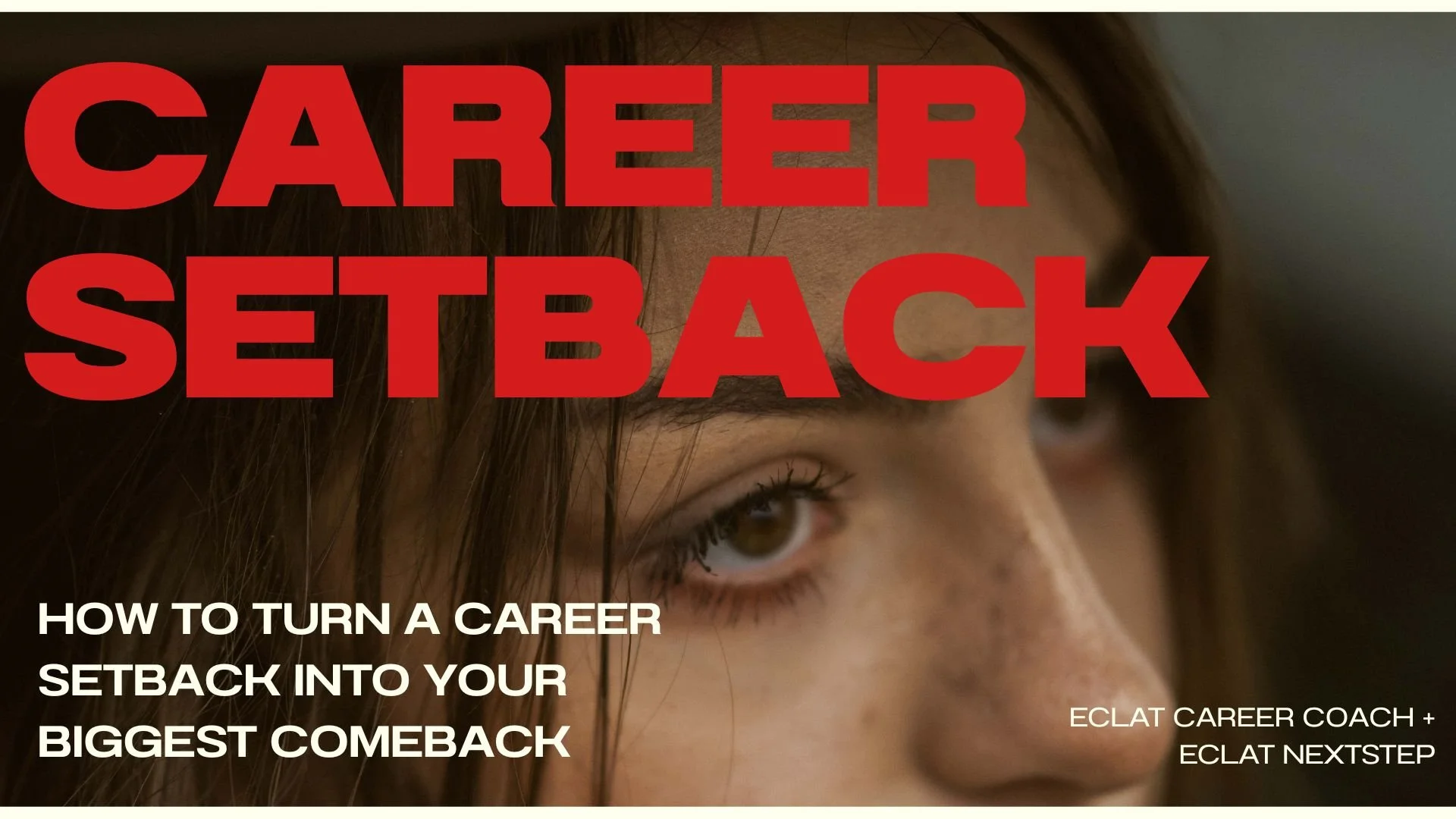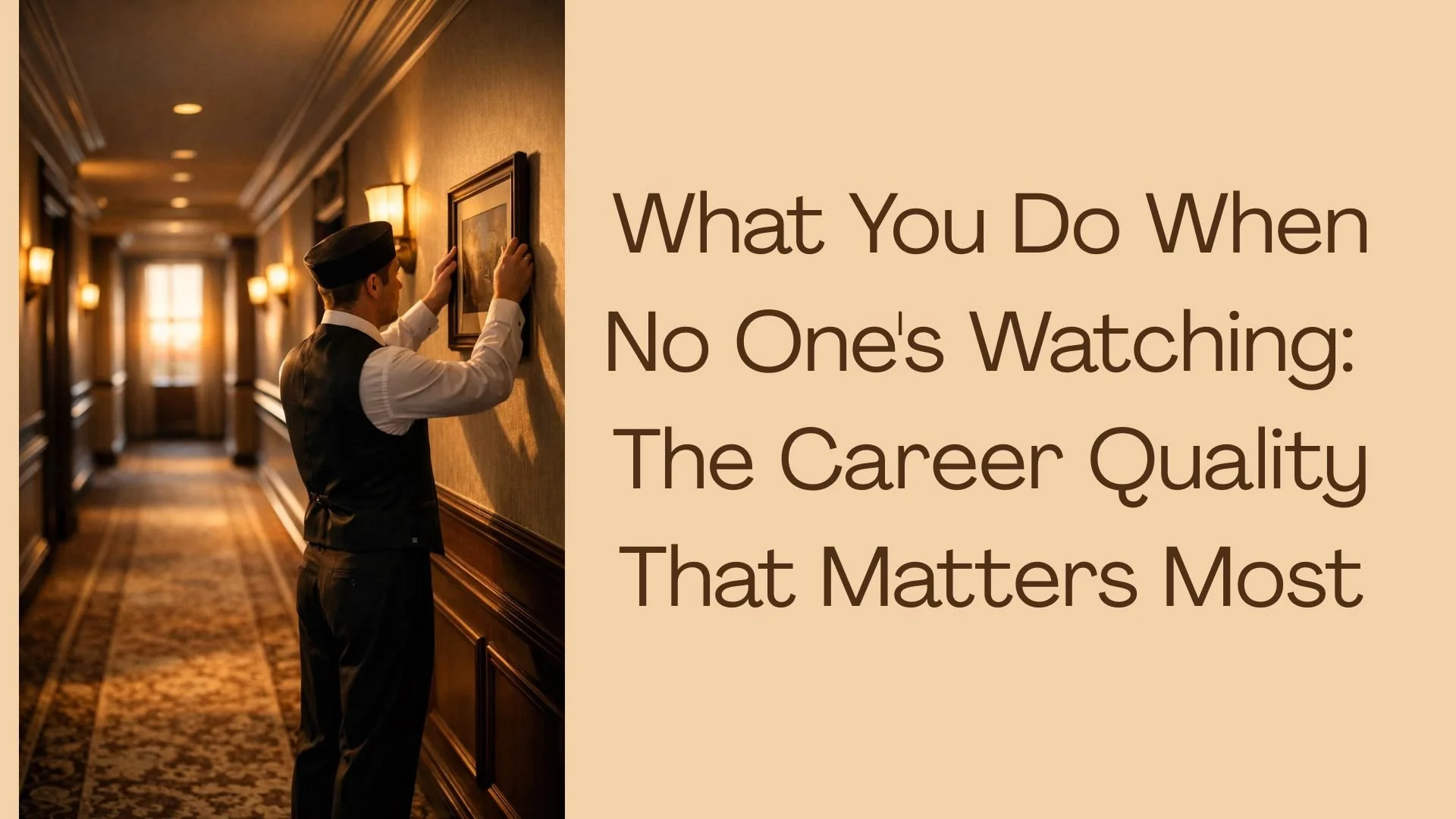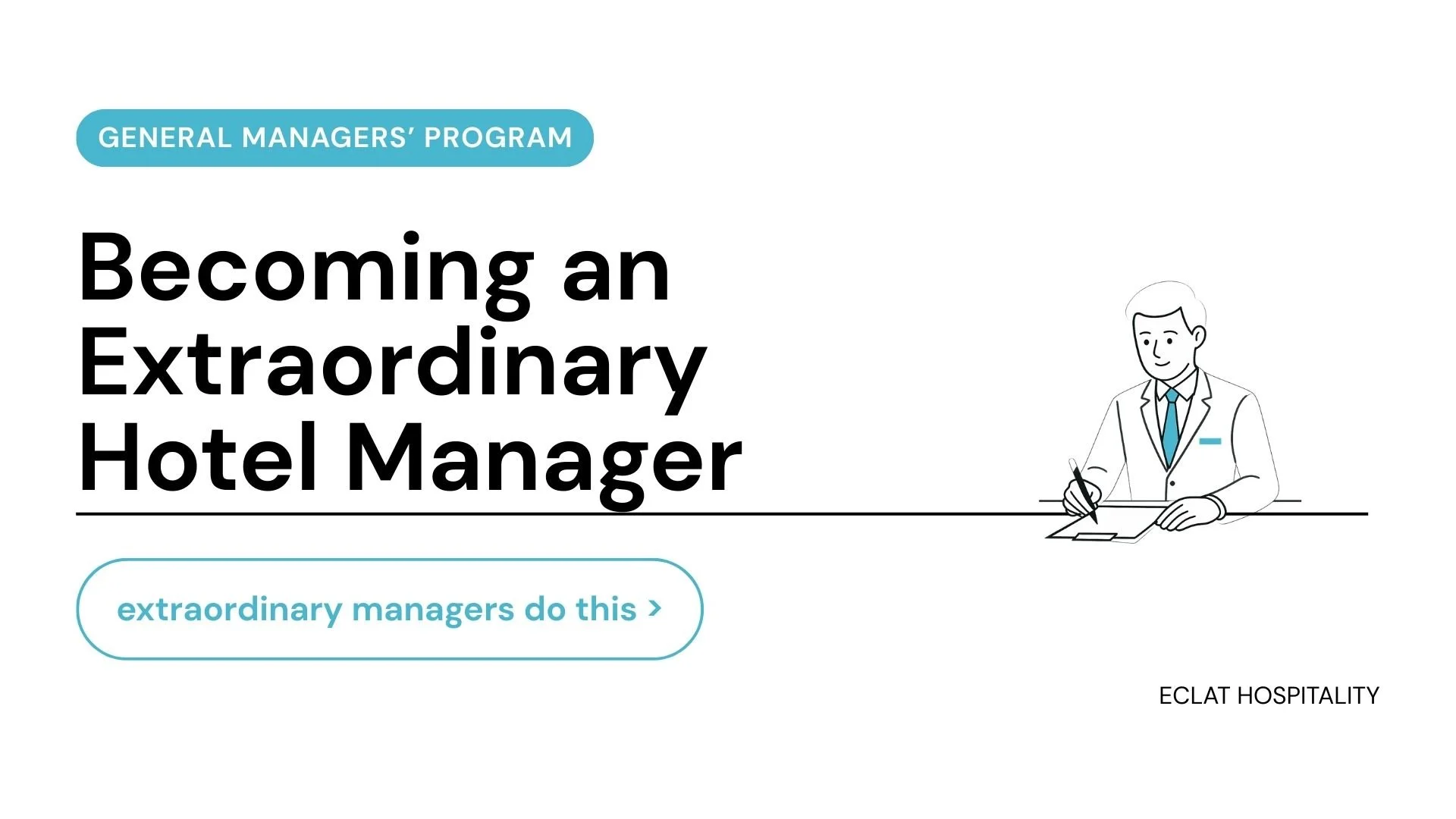How to Turn a Career Setback into Your Biggest Comeback
Here's something honest: every single person in hospitality, from guest service associates to general managers, will face at least one career moment that feels like a punch to the gut.
Maybe you applied for that promotion and didn't get it. Maybe your property closed unexpectedly. Maybe you lost a job in a restructuring that had nothing to do with your performance.
If you're reading this and thinking, "That's me right now," we want you to know something: this setback doesn't define you. What you do next does.
And if you're reading this from a good place in your career, file this away. Because the truth is, setbacks happen to everyone. The question isn't if, but when and how you'll respond.
The Setback Nobody Talks About
Here's what happens after a career setback that nobody really prepares you for: you start questioning everything.
Am I good enough?
Did I waste my time?
What do I do now?
If you're feeling this right now, you're not alone. These questions are normal. They're human. And the fact that you're asking them means you care about your career, which is exactly the quality that will help you bounce back.
Give Yourself Time to Process (Really)
The first thing we want you to do is give yourself permission to feel disappointed.
You don't need to immediately "look on the bright side" or "turn this into a learning opportunity." That can come later.
For now, acknowledge that this hurts. Talk to someone you trust. Write it out. Take a walk. Let yourself be frustrated or sad for a day or two.
Why? Because if you skip this step, the disappointment doesn't disappear—it just shows up later as resentment, burnout, or self-doubt.
After 48-72 hours, you'll be ready to shift gears. That's when you move into action mode.
Ask Yourself: What Can I Learn From This?
Once you've processed the emotion, it's time to get honest with yourself.
Not in a harsh, self-critical way, but in a "what can I take from this?" way.
Here are three questions that help:
1. What was actually in my control here?
Sometimes setbacks happen because of things we can't control: budget cuts, restructuring, leadership changes. But sometimes there are small things we could have done differently. Identifying those helps you grow.
2. What skill or experience am I missing?
Did the feedback point to something specific? Communication? Technical skills? Leadership presence? This isn't about beating yourself up, it's about seeing the gap clearly so you can start closing it.
3. What's one thing I can do this week to move forward?
This is the most important question. Because action, even small action, is what breaks the paralysis.
Four Ways to Move Forward After a Setback
Once you're clear on what happened and what you can learn, you need to decide: What's my next move?
Here are four paths forward. You only need to pick one.
Option 1: Get Better at What You're Already Good At
Sometimes the best response to a setback is to double down on your strengths.
Example:
Priya worked in front office for five years. She applied for a Front Office Manager role and didn't get it because "you need more experience with systems and revenue management."
Instead of trying to become a revenue expert overnight, Priya focused on what she was already great at: guest recovery and VIP service. She took on every guest complaint and every VIP arrival. She documented what she did. Within a year, when another FOM role opened, the hiring manager said, "We need someone who can handle high-pressure guest situations. That's you."
When to choose this: If you're already good at something and the right opportunity just hasn't shown up yet, get even better. Make yourself impossible to ignore.
Option 2: Build the Skill You're Missing
Sometimes a setback shows you exactly what you need to learn next.
Example:
Arjun was a Food & Beverage Supervisor who wanted to become an F&B Manager. He kept getting passed over because "you're great with people, but you don't understand the numbers side."
So he asked his manager if he could shadow the cost control meetings. He took a free online course on F&B costing. He started tracking food cost percentages for his outlet. Six months later, when a manager role opened, he had the numbers skills to back up his people skills.
When to choose this: If the feedback was clear and fair, and you know exactly what skill you need to build, go build it. You don't need to be perfect, you just need to be better than you were six months ago.
Option 3: Look for a Better Fit
Sometimes the setback isn't about you: it's about the environment.
Example:
Neha worked at a large chain hotel where promotions were based on tenure, not performance. She watched people with less skill get promoted simply because they'd been there longer.
After losing out on a third promotion, she stopped trying to change the system. Instead, she moved to a boutique luxury property where performance mattered more than politics. Within two years, she was Assistant Front Office Manager, something that would have taken five more years at her old property.
When to choose this: If the system isn't rewarding what you do best, find a system that does. Not every property, brand, or segment will be the right fit for you and that's okay.
Option 4: Build Something of Your Own
Some setbacks push you to create your own opportunity.
Example:
Rajesh was laid off during a property closure. Instead of immediately looking for another hotel job, he started offering consulting services to small boutique hotels that needed pre-opening operations support. He used his 15 years of operations experience to help three properties launch successfully. Now he's building a consulting practice on his own terms.
When to choose this: If you have expertise that hotels need and you're ready to work for yourself, a setback can be the push you needed to start something new.
The One Thing That Speeds Up Your Comeback: Help Others
Here's something we've seen again and again: the people who recover fastest from setbacks are the ones who help others while they're recovering.
It sounds counterintuitive, but it works.
Why? Because when you help someone solve a problem, you remind yourself, and the industry, what you're capable of.
Here's how to do this:
Share something you learned on LinkedIn. It doesn't have to be profound. Just share one thing you figured out this week. "Here's how I handled a difficult guest complaint" or "Here's what I learned about upselling room upgrades."
Help someone in your network. Review a friend's resume. Make an introduction. Answer a question. When you help others, people remember, and they'll help you when you need it.
Volunteer to train or mentor. If your property offers peer training or mentoring, raise your hand. Helping someone junior to you reminds you how much you actually know.
Real story:
After losing a Rooms Division Manager role, Vikram started posting weekly operations tips on LinkedIn. He helped five people in his network with interview prep. When he was ready to interview again, three properties reached out to him directly because they'd seen his posts. He didn't even apply for his next role, it came to him.
Your 30-Day Action Plan
If you're in the middle of a setback right now, here's what to do in the next 30 days:
Week 1: Process It
Take 48-72 hours to feel what you need to feel
Talk to someone you trust
Write down what happened and what you learned
Week 2: Decide Your Path
Answer the three questions: What was in my control? What skill am I missing? What's one thing I can do this week?
Choose which of the four paths forward makes the most sense for you
Week 3: Take Action
If you're building a skill, start learning it this week
If you're looking for a better fit, update your resume and reach out to 5 people
If you're doubling down on your strengths, document what you're great at and start sharing it
Week 4: Help Someone Else
Post one insight on LinkedIn or in a WhatsApp group
Help one person in your network
Make one introduction
By the end of 30 days, you'll have forward momentum. And momentum is everything.
A Final Word: You're Not Alone
If you're going through a setback right now, we know it doesn't feel like it, but this is temporary.
We've worked with hundreds of hospitality professionals over the years, and we can tell you this: the people who inspire others aren't the ones who never faced setbacks. They're the ones who faced them, processed them, learned from them, and kept moving forward
You can do the same.
The setback you're facing right now isn't the end of your story. It's just the chapter that makes the rest of your career more interesting.
And if you want support as you navigate your next step, that's exactly what we're here for. At Eclat, we work with hospitality professionals at every stage of their careers to help them figure out their next move: whether that's up-skilling, repositioning, or finding the right opportunity. If you'd like to talk through your situation, reach out to us about our Eclat NextStep program. Sometimes the best way forward is with someone in your corner who's been there before.
Now go build your comeback.
Team Eclat Hospitality
Career coaching for hospitality professionals
Need clarity on your next move? As a hospitality career coach I help managers and leaders design the next step in their careers — practical, honest, and tailored to you.




Master the "5-second pause" and learn why adaptability is the #1 skill for getting promoted in hospitality in 2026. Tips for hotel and restaurant professionals.